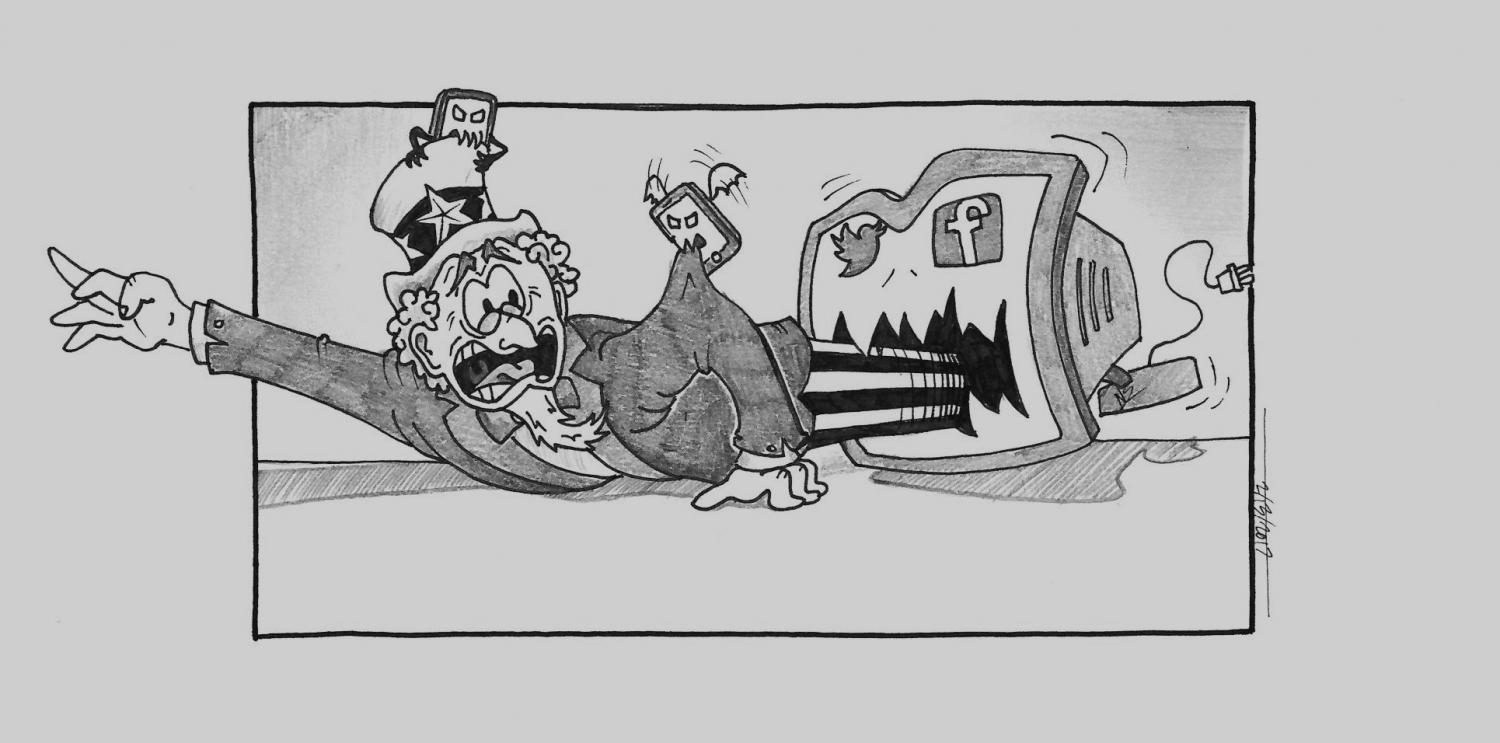Fake news undermines American democracy
The news presented on social media is not always true. Readers need to evaluate stories carefully before believing the content.
February 15, 2017
It is no secret that we millennials spend a staggering amount of time on social media. Platforms such as Twitter, Facebook and YouTube allow people to publish their thoughts and daily activities for the world to see. Just about anyone can broadcast their agendas online, and thus the integrity of our democracy is under fire.
“Social media is great, it gives a voice to everybody,” said Porismita Borah, assistant professor at the Edward R. Murrow College of Communication. “However, it gives a voice to misinformation as well.” Within the college, Borah examines social media in the context of politics and health.
For clarification, fake news in this context means biased sources, advertisements and outright lies published by deceptive media posing as trusted news.
According to Stanford, a 2016 research study concluded that a vast majority of young students cannot differentiate between sponsored content, politically biased messages on social media and factual world news.
Young people are the future of this country. It is a monumental threat if we fall prey to ill-intentioned media outlets. American democracy relies on a well-informed public.
It is important for citizens to know what is going on and form an opinion based on facts. Otherwise, bias and misconstructions infect our knowledge.
During the last presidential election cycle, one candidate in particular spread falsehoods. According to Politifact, only 15 out of Donald Trump’s 358 analyzed political statements are labeled as “true,” while 122 have been labeled “false.”
Kellyanne Conway, counselor to the president, coined the term “alternative facts” during a now infamous “Meet The Press” interview with Chuck Todd. Using “alternative facts” in defense of fabricated truths simply means lying.
“There’s a delicate balance of forces in a democratic society,” Borah said, “which can absolutely be threatened by the dissemination or consumption of misinformation.”
When the leaders of our democratic society casually spread fallacies with no evidence to back up their claims, they are harming the integrity of our democracy.
Freedom of the press is a force that holds our government officials liable for their actions. The job of the press is to hold political leaders accountable, Borah said.
“This is a time where journalism is so important, it doesn’t matter whether you’re a Republican or Democrat,” she said.
Trump condemns journalists and reporters when they do not publish news that is favorable to him.
As recently as Jan. 29, Trump criticized the New York Times from his official Twitter account, tweeting, “Somebody with aptitude and conviction should buy the FAKE NEWS and failing @nytimes and either run it correctly or let it fold with dignity!”
Journalism that is backed by evidence and is as bias-free as possible is what keeps us citizens informed. When our own president is crying “fake news” on social media, the youth absorb this message and some might take it to be true.
In an age where technology and social media are intertwined with politics, it is more important than ever to process information critically and stay skeptical.
We must ask ourselves if Twitter accounts have political bias, if the “facts” we are reading on Facebook are evidence-based through scientific research and question over and over again the inherent truth of our beliefs. If we do not, we are doing ourselves a disservice by allowing our minds to be penetrated by “alternative facts.”
Remember, millennials hold the power, because our votes and lives are the future of America.
Geana Javier is a sophomore economics major from Seattle. She can be contacted at 335-2290 or by [email protected]. The opinions expressed in this column are not necessarily those of the staff of The Daily Evergreen or those of The Office of Student Media.





















